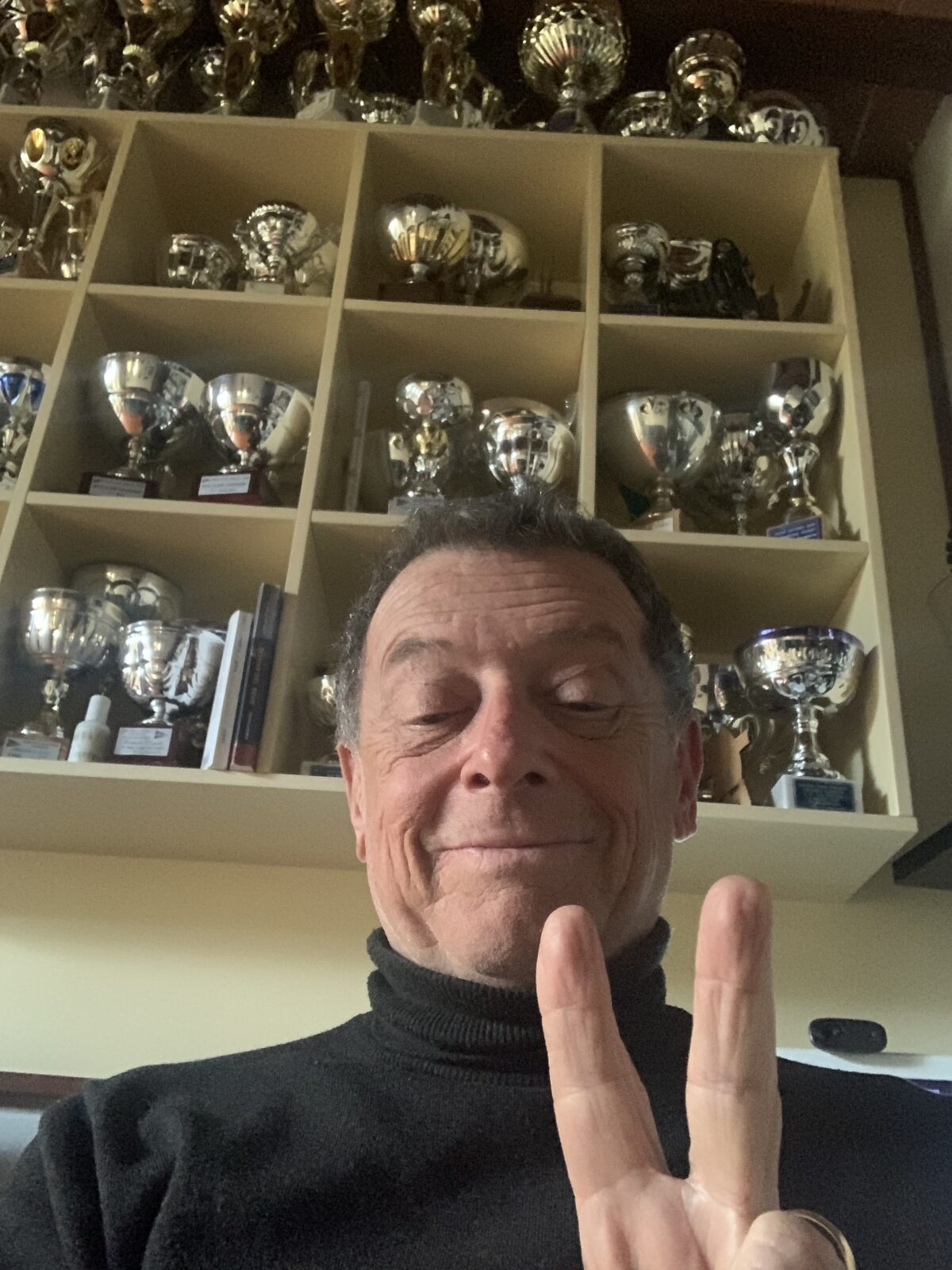For a coach to understand and get the best out of his/her athletes and team, it is very important that they are aware of how their athletes are motivated. In Motivation: What Moves Us?, Dan Goleman puts forward his definition of ‘Motivation’
The word ‘motivation’ shares its root with ’emotion’: both come from the Latin motere, to move. Our motives give us our aims and the drive to achieve them.Anything that’s motivating makes us feel good. As one scientist put it to me, “The way nature gets us to do what it wants is by making it a pleasure.”

Most elite athletes have a natural talent for their sport. But what motivates them to drive themselves to succeed? In this week’s blog we take at look at Self-Determination Theory and the different types of motivation that drive each and every one of us.
Self-Determination Theory
There are 2 main types of motivation, namely extrinsic and intrinsic motivation. They are often portrayed as separate behaviors but in reality behavior is complex, and people’s actions are usually the result of several sources of motivation. It is more useful to think of motivation as being a continuum between self-determined behaviors (things you do for enjoyment and pleasure) and non-self-determined behaviors (things you do because you feel you must or have to rather than wanting to). Sometimes doing something that you feel you have to can lead to being motivated to doing something else that you enjoy. Our day to day behaviors are not intrinsic or extrinsic but a combination of both. But there is no doubt that being in control of our lives and being more intrinsically motivated helps with being committed and more passionate about what we do.
Self-Determination Theory (SDT) refers to the ability or process of making your own choices and controlling your own life. SDT was originally brought to the fore by researchers Edward L. Deci and Richard M. Ryan in the 70s and 80s. The theory behind Self-Determination points out that we all have 3 innate psychological needs:-
- Competence: Achievement, Knowledge and Skills
- Autonomy: Independence, Feeling in Control
- Relatedness/Connection: Feeling connected to your environment:
The more each one of these needs is satisfied in what we do, the more we perceive the task as intrinsic hence more enjoyable.
Types of Motivation
Within the continuum of self-determined behaviours, the range of motivations span from Amotivated to Intrinsically motivated. The different types of motivation along this continuum are:-
- Amotivation: You do something unintentionally or because you are forced to / have no control over a situation / a feeling of ‘going through the motions’
- Extrinsic: External: You do something because you want to get an award or because you may be punished if you don’t
- Extrinsic: Introjection: This is ego/approval driven. You participate to avoid feelings of guilt/failure or to enhance your ego or self-worth
- Extrinsic: Identification: You see a purpose in what you are doing and can understand why it is important to you
- Extrinsic: Integration: You identify with a task because it feels right for you / feels a part of you
- Intrinsic: You are doing something for the joy that you feel doing it.

To simplify or give some examples, an intrinsically motivated athlete might take part in sports because they enjoy playing, enjoy improving their skills, enjoy competing and feel a strong connection to their sport in relation to how they want to live their life. They tend to be goal focused and strive for improvement and development.
An extrinsically motivated athlete might take part in sports because they want to win trophies, competitions, gain media attention or because they feel they will disappoint or be deemed a failure if they don’t. Lots of successful athletes are extrinsically motivated and let’s face it at the top level of sport you don’t have the luxury of doing all you need to do to succeed and loving every element of it. There is no right or wrong; but increasing your intrinsic motivation gives you a greater sense of control and purpose and can help you improve your performance and deal with the many obstacles on the road to success.
Relationship between motivation and athlete burnout
Given the pressures and demands associated with competitive sport, it is not surprising that interest in athlete burnout has been on the rise. The role of motivation in athlete burnout is something that has been looked at in research. From a self-determination theory perspective, burnout is associated with a chronic failure to meet your psychological needs (i.e. competence, autonomy and connectedness). Numerous studies have found that intrinsic motivation is negatively related to athlete burnout, while amotivation has been shown to be positively related to burnout symptoms. In Motivational profiles and burnout in elite athletes: A person-centered approach, the authors aimed to assess the link between elite athletes’ motivational profiles and athlete burnout. The study highlighted that combinations of motivational regulations appear to make athletes more (or less) susceptible to sport burnout. They found that athletes characterized by relatively high levels of amotivation and moderately controlled motivation showed higher levels of a reduced sense of accomplishment and sport devaluation. Findings from this study suggest the need for effective strategies for dealing with highly amotivated athletes in order to reduce the likelihood of burnout symptoms
How to improve intrinsic motivation in your athletes
Coaches behavior with their athletes/team can have a profound impact on athlete satisfaction and motivation. Research has highlighted the potential for enhanced motivation and improved performance if coaches adapt their own behaviors to fulfill their athletes’ needs of autonomy, competence and connectedness.
Some of the ways intrinsic motivation can be developed are:-
- Focus on improving performance: Athletes continuously compare themselves to others and this can often be a cause of de-motivation. It is better to encourage athletes to compare their current performances to their previous performances and highlight improvements. This motivates and helps the athlete to stay focused and motivated on their own skills and development
- Ask the right questions: Do you know why your athlete is motivated to turn up to training, compete, or work hard? Is it because they feel they have to, have pressure from parents, are ego-driven or is it because they enjoy their sport? Sometimes along the road to success athletes go through self-doubt and lose motivation by focusing on the negatives and forgetting why they enjoyed it in the first place. Knowing how your athlete feels is half the battle. Watching them react to what you say and do can tell you a lot about how they are motivated
- Positive Coaching: Stay positive and encourage your athletes. It is easier for athletes to take criticism if their positives are highlighted and that criticism is constructive and delivered in a positive manner. Helping your athletes see their improvements and providing positive feedback in a way that suits their individual needs can help promote intrinsic motivation. Cote and Hedgwick (2003) claimed athletes’ self esteem was enhanced by coaches who exhibited high levels of technical instruction, encouragement and supportive behavior
- Control: Athletes respond better when they feel they have some control / input into their training environment. Coaches can still keep control of the overall running of a training session while giving athletes some say in what they are doing, what works and what could be improved
- Connection: In team sport, how each individual acts as part of a team has a huge impact on performance and team spirit. When relationships are strong within a team, intrinsic motivation is increased. Encouraging team activities outside of sport can help develop a greater sense of connectedness
- Mindfulness and Relaxation: All work and no play makes for a very stressed athlete. They need to recognize the importance of work-life balance and finding time for their social network, things they do to relax and taking time out to disconnect from negative thoughts and stressors
- Goals and Objectives: Having achievable goals and objectives gives athletes a focus and also highlights small gains which over time lead to major improvements. Athletes need to be involved in the process and feel like they have a say and some control. Small term goals which are easy to track allow athletes to gain confidence and sense of purpose
Motivation is an integral part of the ‘secret to success’ in sport and life. Everyone experiences times when they are less motivated and times when they feel the world is at their feet. The most successful athletes are not always the strongest and the fastest but maybe they are the best at staying motivated.

